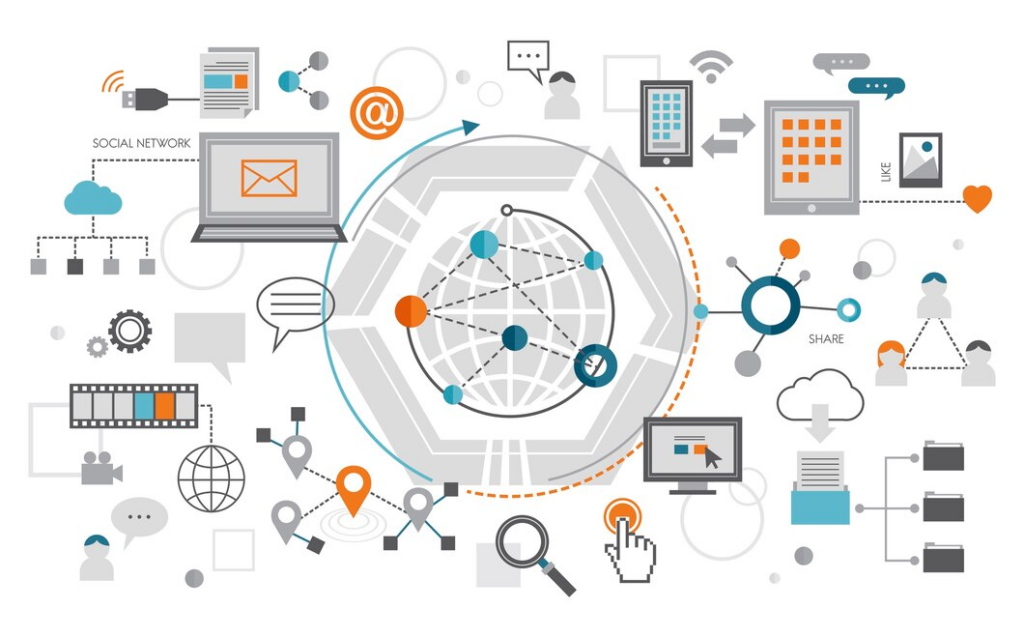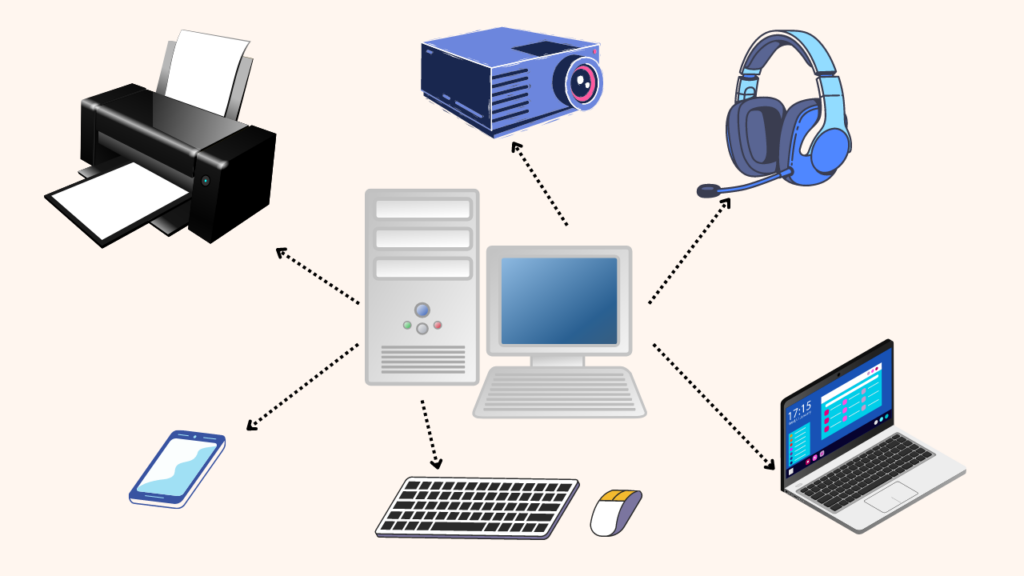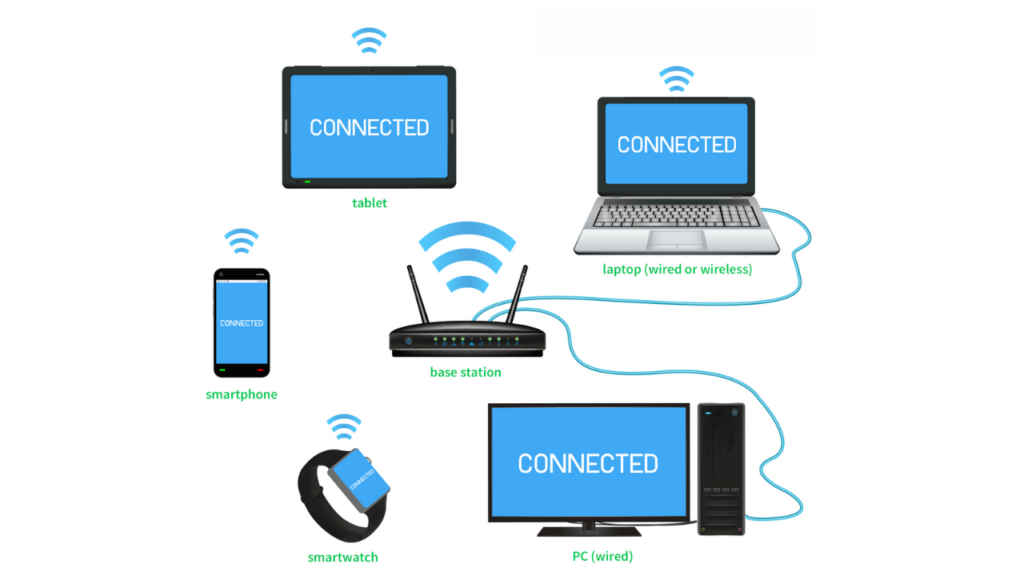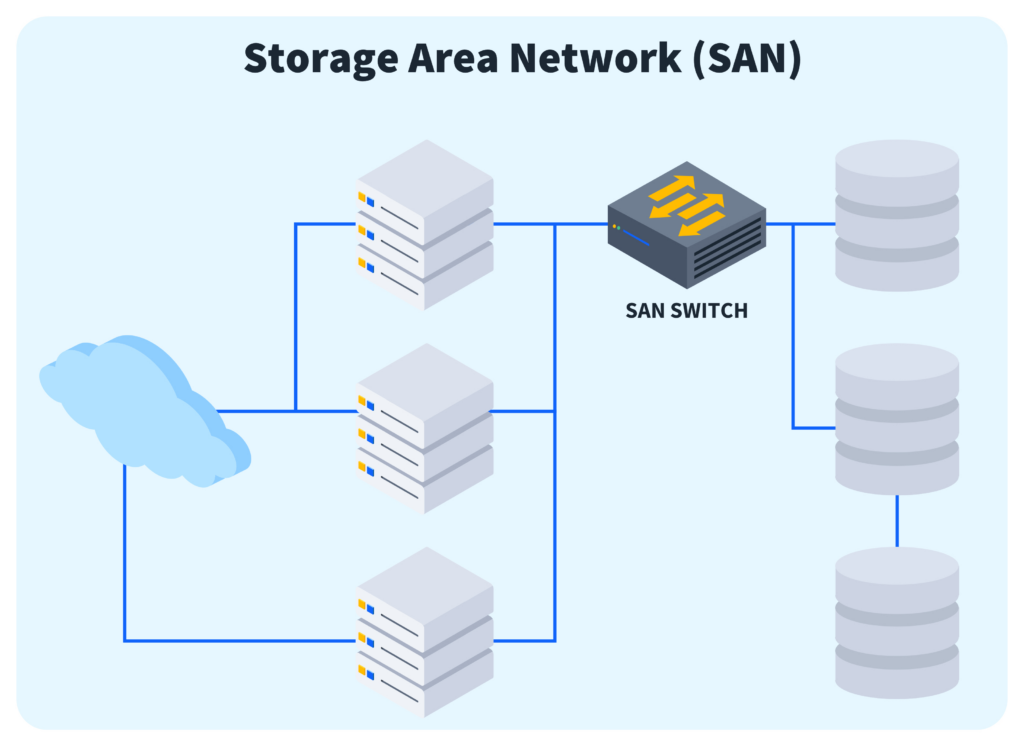Understanding the Different Types of Computer Networks

Computer Networking for Beginners

In this article, we will be exploring the various types of networks, which are classified based on their size and geographical coverage. Specifically, we will be discussing some lesser-known network types that individuals may use in their daily work without realizing it.
What is a Computer Network?
A simple Definition: A network of a set of computers or a set of technical devices interconnected by using a transmission medium and networking devices. (Media of transmission: copper, fiber, etc.) (Networking devices: Hub, Router, Switch)
Network Topologies
A simple Definition: This ensures the physical arrangement of the devices (computers) in a specific network.
1. Bus:
Connecting all the computers together.

2. Ring:
Connects any computer to, two other computers.

3. Star:
In these types of networks, Computers are connected to a middle device (Usually a Hub)

4. Mesh:
In the case of these types of networks, each computer makes a point-to-point connection between every computer.

5. Tree:
Computers on this network, can have child computer.

Advantages of Computer Networking
1. Users can share devices, including routers, printers, databases and even applications as well.
2. Users can access the information easily and quickly.
3. Users can experience better communication within the network, including email and chatting.
Classification of Computer Networks
1. PAN (Personal Area Network)

This is a type of network used for connecting personal devices like smartphones, tablets, and laptops. Wireless technologies such as Bluetooth, infrared, and near-field communication (NFC) or a wired connection like USB can be used to connect them to each other.
What are they exchanging? PAN is generally used for transferring small files such as music, photos and short videos, and so on.
2. LAN (Local Area Network)

This expands over a small area, generally, these types of networks connect network devices such as computers, servers, switches or printers in a small area, including within a building or even within a house. Usually, schools, universities, buildings and offices use this. Routers are used to interconnect LANs to a WAN.
Ethernet is the most common type of LAN.
What are the advantages of using a LAN?
- Easy to manage
- Owned by the same organization (Usually)
- Owned by a single organization (Usually)
What are the devices used in LAN?
- Repeaters
- Hubs
- Bridges
- Switches
What are the specifications used to setup a LAN?
- Ethernet
- Fast Ethernet
- Gigabit Ethernet
- Token Ring
- Token Bus
3. WLAN (Wireless Local Area Network)

This is also a local area network that uses wireless communication instead of wired communication. A wireless local area network (WLAN) uses a Wi-Fi router or wireless access point for communication with devices like laptops, tablets, and smartphones.
WLAN is a LAN but without using cables.
4. CAN (Campus Area Network)

A CAN is a network that connects multiple LANs within a limited area. For instance, a CAN could be an industrial factory network area that has multiple buildings that are connected to each other to form a larger network. Each building can have its own Local Area Network (LAN) and then these individual LANs can be interconnected to form a Campus Area Network (CAN).
5. MAN (Metropolitan Area Network)

This expands over an area that is bigger than a CAN but smaller than a WAN. In general, these types of networks connect network areas within a city or town such as several buildings. MAN is typically owned by a large corporation and they usually use fiber optic cables to the network since it allows a high-speed data transferring technology that gives the ability to share data and resources within a second. Routers are used to interconnect LANs to a WAN.
6. WAN (Wide Area Network)

This is the largest type of network and this expands over a large area. These types of networks connect network devices in a large geographical area. As an example: a country, interconnected cities within a province or even the entire globe.
WAN includes multiple LANs, CANs, and MANs. The Internet is a good example of a Wide Area Network.
What are the devices used to build a WAN?
Anyone can use the below-listed devices when they are building a Wide area network. Usually, they used those as the interconnecting devices.
- Routers
- Modems
- Servers
- Multiplexers
- WAN Switches
What are the common technologies that used WAN?
Below listed technologies are typically used in wide area network technology.
- ADSL
- Dial-up connections
- VPN
What is ADSL?
Asymmetric Digital Subscriber Line (ADSL) is a common wide area network technology that is
faster and the data transfer rate is high. Copper cables are used to interconnect the devices.
Advantages and Disadvantages of ADSL
Advantage:
- Users can use both voice (telephone) and data at the same time.
- Higher speed than dial-up connections.
- Monthly fixed rate.
Dis Advantage:
- Sometimes bandwidth is low while users are high.
What is a Dial-Up connection?
In these types of connections, the Computer is connected to the internet through a Modem and the Telephone connection via an Internet Service Provider (ISP).
Advantage:
- Low cost
- Users can fix the connection through the existing telephone connection.
Dis Advantage:
- Low speed
- Auto connect facility is not available, the User needs to dial up when needed.
- Users can’t use both voice and data same time.
What is a VPN?
Virtual Private Network (VPN) it enables users to build a private communication network.
7. SAN (Storage Area Network)

A SAN is a type of computer network that is specifically designed for data storage. This high-speed network stores and provides access to a large amount of data. These types of networks consist of multiple disk arrays, switches, and servers.
What is the main reason for using a SAN? Since SANs are not affected by network traffic that can happen in local area networks, they offer stable and reliable performance.
What is the difference between a Local Area Network and a Sub-network (Subnet)?
Consider an office network for example. They may have different departments within the office, such as finance and human resources that are connected to the same local area network. The finance department frequently sees network traffic from the HR department since these all are together in the same LAN. To avoid this, they divide their LAN into two smaller networks and connect them by using a Router and these smaller networks are called sub-networks aka Subnets. This network can create as many subnets as needed based on business requirements.




